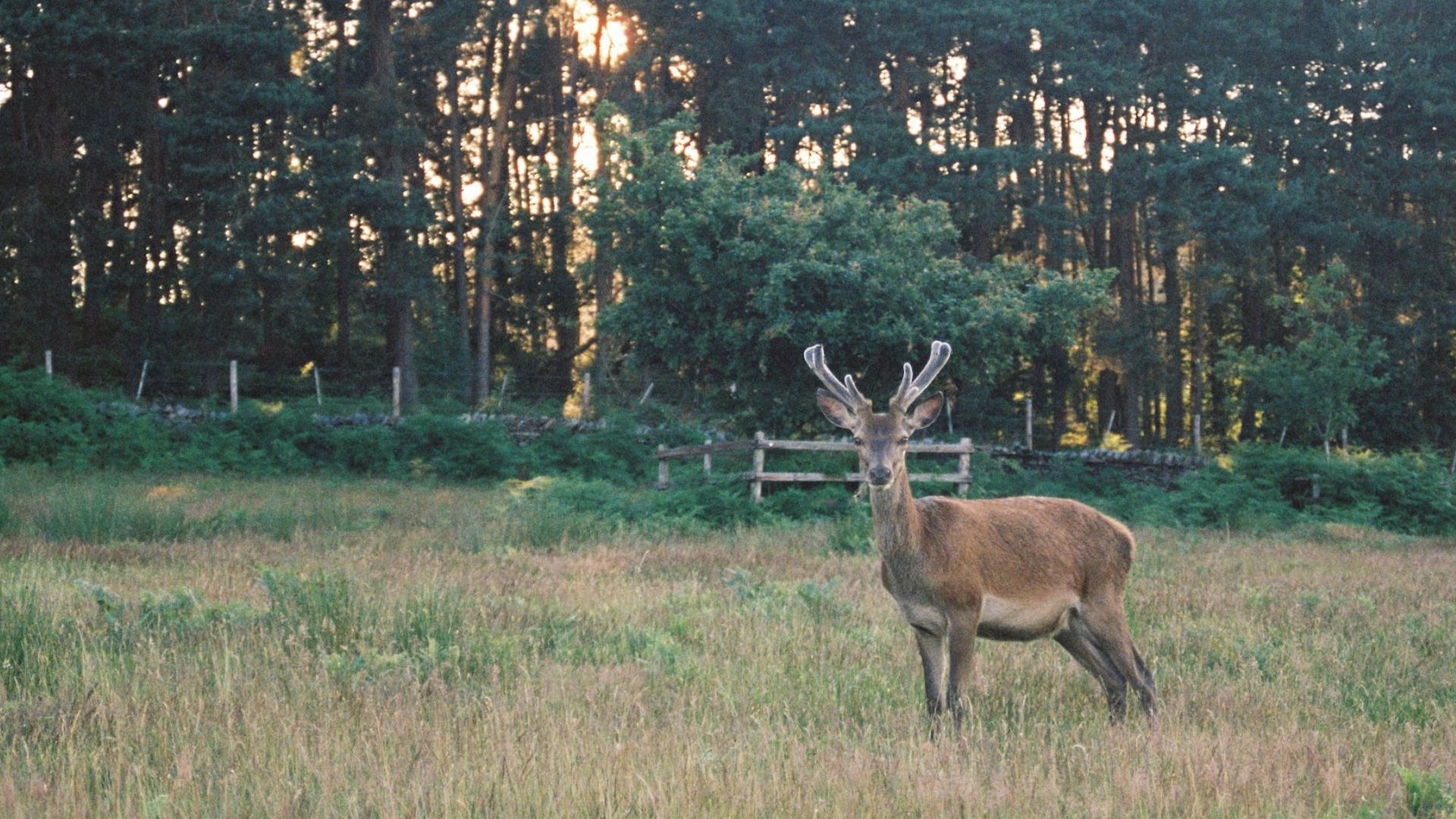
Keeping your dog safe around deer
You might have seen videos of a dog chasing deer, or deer chasing a dog, but it's very important to take steps to protect the safety of both your dog and any deer.
Making sure you're in control of your dog around deer and livestock is incredibly important. You should:
- Always walk your dog on a lead if you can see any deer, even if you think your dog won't chase them
- Be aware of where deer are and avoid areas where deer could be hiding
- Keep your distance (at least 50m is recommended)
- If your dog is barking, try to distract them and keep them quiet
- Prepare for any trips by brushing up on your dog's recall training
- Ensure your dog is microchipped, that any microchip details are up to date, and that they're wearing a collar and ID tag with your details
- Always clean up after your dog
- Take dog treats with you to reward good behaviour
You might be concerned that your dog will not have as much fun on lead, but that doesn't have to be the case. Read our advice on keeping on lead walks fun for your dog.
What happens if my dog chases deer?
As an owner, it’s your responsibility to prevent your dog from attacking and chasing, or being out of control off lead in a field containing livestock or deer.
If your dog attacks a deer in England or Wales you can be prosecuted under the Dogs Act 1871 or the Dangerous Dogs Act 1991. Owners of dogs that worry or attack farmed deer in Scotland could be prosecuted under the Dogs (Protection of Livestock) (Amendment) (Scotland) Act 2021.
Read more about the laws you must follow if you have a dog.
Are there times of the year when deer are more aggressive?
At certain times of year, deer may be more protective of their young or females which can lead to more aggressive behaviour. Be extra vigilant during:
- birthing season (May to July)
- 'rutting' or mating season (September to November)
What if I feel threatened by a deer?
If you are concerned about a deer approaching you, back off slowly and try to put something in the way of you and the deer eg a big tree. It's likely that a bit of space will de-escalate the situation.
If you and your dog are being chased by a deer, always let go of your dog's lead to give them and yourself the best chance of safety.
Deer, ticks and dogs
Ticks love both deer and dogs. Not only are ticks parasites, but they can also carry and pass on Lyme disease, a serious bacterial infection. If you walk your dog in areas with deer make sure you:
- keep a close eye on your dog
- check them for ticks at least once a day
- use a tick treatment that will either repel ticks or kill them quickly if they attach
Spot on treatments, tablets and collars are available and it’s best to consult your vet about which is most suitable for your pet.
Page details
Reviewed
• 13 December 2022
Next review
• 12 December 2025




